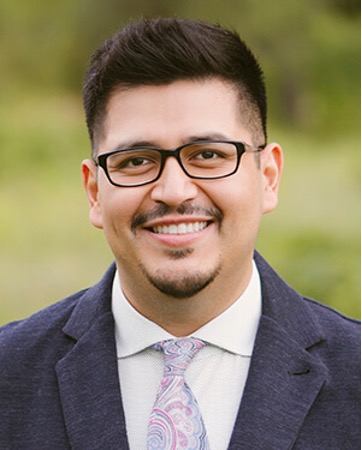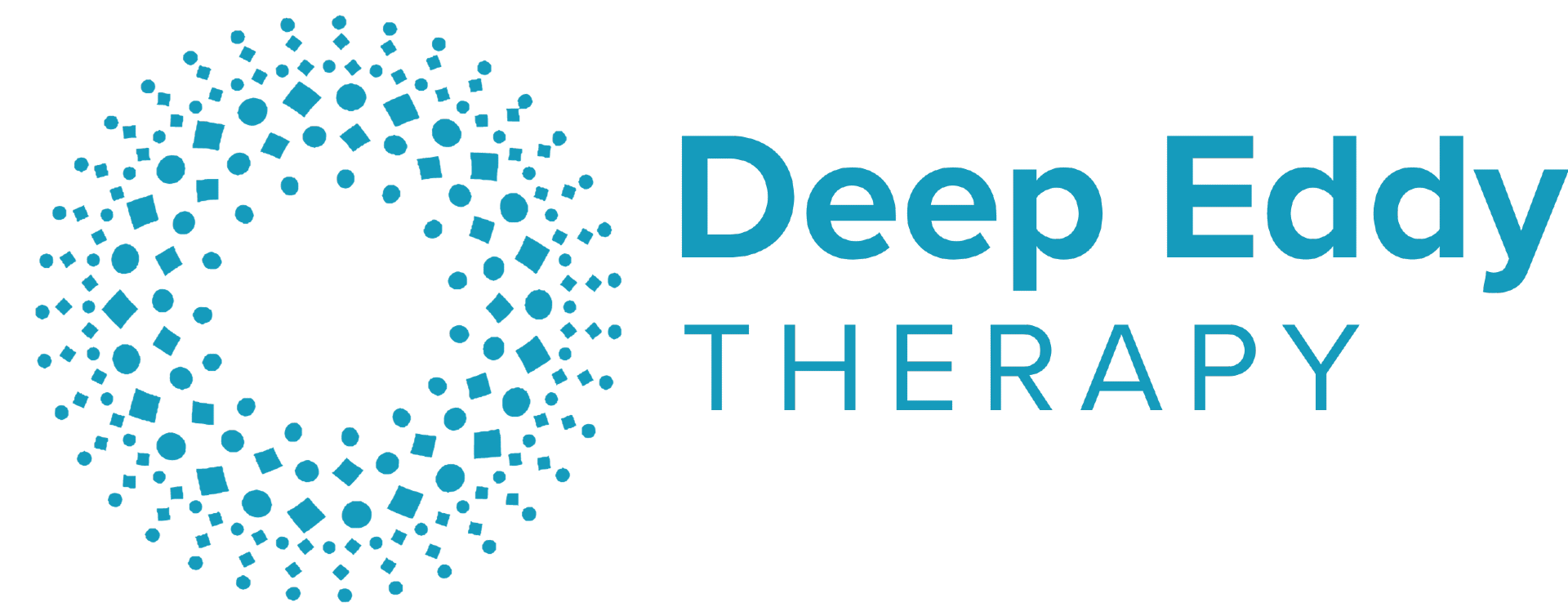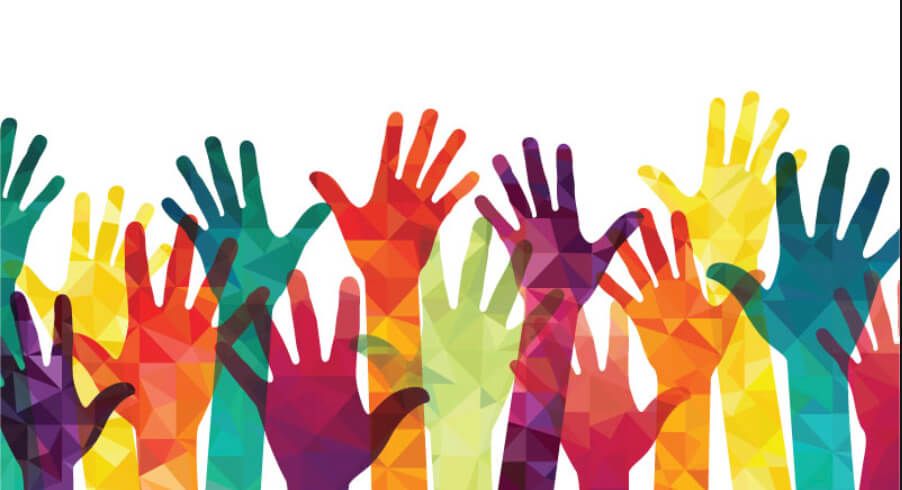
Insights from Uriel Navarrete, PsyD
Dr. Uriel Navarrete completed his Doctor of Clinical Psychology at the California School of Professional Psychology at Alliant International University, Los Angeles, and completed an APA-Accredited internship at the Texas State University Counseling Center. As a therapist, Dr. Navarrete believes that clients possess the innate bodily wisdom that enables them to unlock their own power, healing, and liberation. He also focuses on the exploration of your story, your relationships, and the larger structural systems that impact your life.
I recently met with Dr. Navarrete to explore questions regarding the intersection of social justice, cultural responsiveness, and the practice of psychotherapy.
To sign up for psychotherapy services, contact us today.
Q – First, tell us a bit about yourself. What brought you to Deep Eddy Psychotherapy?
Dr. Navarrete: I can’t help but start with family as being the root of my story.
My parents immigrated from Mexico in the 1960s and 70s. I was 1 of 7 children, the youngest, the baby of a large family in Los Angeles, CA. My family really ascribed to the immigrant narrative – be productive, achieve success, and attain the American dream.
I remember, as a young boy, my dad would always tell us that “we have to be Americanized.” And because of the process of assimilation, my family experienced an erasure of Mexican/Chicanx culture. As a Brown man in the United States, I experienced racialized trauma as a result of various forms of systemic/institutionalized racism and white body supremacy.
Dad always told us that we have to work twice as hard as our white counterparts in order to be recognized as equal or valuable. He pushed my siblings and I to go beyond our limits – and, ultimately, it came from a place of wanting to protect us. He wanted us to thrive in a white world. But the implicit message I got was, “as a Brown person, you aren’t good enough. You have to compensate. You have to prove yourself.”
To complicate things further, I was straddling the complexity of not just being a person of color, but also being queer. As a Brown queer man living in the United States, spaces of love and belonging haven’t always been afforded to me. Altogether, Latinx cultural values rooted in traditional Catholicism and machismo, coupled with the culture of toxic masculinity and systemic racism in the United States, sent the continual message that that I was an unwanted outcast.
So, in an effort to survive, I learned to operate from a place of shame and terror due to systems of oppression. In upholding the immigrant narrative from my father, this gave me fuel and drive to succeed, while making my family proud. However, much of the drive to do more came from a desire to belong. I worked tirelessly in school and made my way through my doctoral program. Ultimately, I wanted to earn respect and acceptance from my family and society.
But then, something changed.
As I began the journey of becoming a psychologist, I engaged in some personal work, and learned to let go of some of that shame-driven motivation. I sought out liberation work that involved building a network of support and allyship –being invested in Brown and queer communities where I felt like I belonged without having to justify who I was or prove I was worthy. I experienced the healing power of being supported by people who were like me with shared experiences, who could really articulate what it’s like to be in a world where you are devalued, psychologically (and even physically) assaulted, and silenced by various systems of oppression. Much of this healing work helped build my resilience and tenacity for ongoing challenges with systemic oppression.
It is important to note that although I have sought out healing and liberation, systems of oppression continue to exist and persist in the United States. As a result, I hold a strong desire to help marginalized others move toward self-empowerment, advocacy, and liberation. Naturally, that brought me to working here at Deep Eddy Psychotherapy.
I particularly love to work with people who have marginalized identities, such as folx who identify as BIPOC (Black, Indigenous, and people of color) as well as people in the LGBTQIA+ community. (For those who haven’t heard of “folx” before, it is a more inclusive version of “folks” that explicitly includes people of all marinalized identities.) I’ve had extensive training and experience in working with these populations. Most of my framework and how I approach therapy is attuned to the life experiences of those populations. I rely heavily on body-based interventions, mindfulness, and interpersonal, emotion-focused techniques to help people learn to connect with themselves, their bodies, and others on a deeper level. And, I deeply enjoy and actively integrate a social justice framework while employing cultural responsiveness in my work with clients.
Q – What do you mean by “social justice?”
Dr. Navarrete: I broadly define social justice as a sociopolitical movement and practice that seeks to redistribute power to enhance the wellbeing of folx who have been disempowered and oppressed, prioritizes access to social institutions such as healthcare, education and housing, as well as equitable access to economic opportunities. It seeks to address the disparities in employment, wealth and income, and educational level. Social justice is all about people coming together and working together to dismantle oppressive structures and reinvent society in the spirit of providing wellbeing for people with historically less power and privilege. Although we hear about it a lot these days, the movements for social justice have been happening for centuries.
Here’s a practical example of why social justice matters. Here in the U.S., Black folx make up about 38.4% of the prison population but only make up 14.7% of the general population. Factors within our criminal justice systems (e.g., law enforcements, courts, and corrections) have created a legacy of continued surveillance, police brutality, mass incarceration, and violence against Black folx in America. Should we continue to maintain the status quo and ignore the importance of revamping these institutions, nothing will change. Social justice strives to address these sorts of issues both on a socio-political level (e.g., lawmaking and enforcement) as well as a cultural level (e.g., building/sustaining an anti-racist culture).
Q – How does social justice intersect with the world of mental health?
Dr. Navarrete: It’s simply not possible to do effective therapeutic work without considering the sociopolitical context in which our clients live. If you miss their contextual experiences, you are missing a large part of their story and will likely do harm.
Let’s use the COVID-19 pandemic as an example. Across the board, we have seen an uptick in depression, anxiety, suicide, and isolation. These are universal experiences right now. So many people feel that way – maybe even some of you reading this today.
But let’s say I’m working with someone who is Latinx, and we look at how this major stressor has affected this group in culturally specific ways. We know that, generally, there are higher rates of COVID being diagnosed among Brown folx– not because of their ethnicity/race, but because of the social conditions in place that increase their risk of exposure. Brown folx are more likely to work within essential roles (e.g., food preparation and serving related, building and grounds cleaning and maintenance, transportation and material moving, etc.) where they are required to engage in direct contact with people. Even worse, what kind of situation might we see with someone who is undocumented? Well then, they might be in a position where they don’t have a choice but to work (e.g., waiting tables) without any legal protections or healthcare- working from home isn’t an option. It’s because of the socio-political structures (i.e., racial capitalism) that have pigeonholed them into those positions with extremely poor conditions.
As mental health professionals, I believe it is our responsibility to not only recognize the influence of oppression, but to serve as sources of healing, empowerment, and support for those who have had to endure social injustices. And we can do that by practicing in a way that is culturally responsive.
Q – What is cultural responsiveness?
Dr. Navarrete: Now, let’s talk about cultural responsiveness. Cultural responsiveness is the ability to effectively respond to someone in a way that seeks to deeply understand their worldview and cultural context while also maintaining an attuned, sensitive, and curious posture.
American culture gives us a default lens of the westernized white European perspective: productivity, linearity, achievement, white body supremacy etc. However, not all people ascribe to those values or see the world through that lens. As a matter of fact, marginalized bodies are often harmed by this dominant structure. By taking on a culturally responsive stance, you can widen your lens of understanding and experience.
Culturally responsiveness and social justice go hand in hand; one cannot and does not exist without the other.
Q – How does cultural responsiveness play out in therapy?
Dr. Navarrete: I’m intentional about adopting a framework that actively deconstructs and challenges mainstream culture, especially with people who have oppressed identities. I have certain pillars that I draw from when practicing cultural responsiveness. My belief is that change comes from a deep respect for my client’s worldview and experience, as well as perceiving them as active and capable.
Cultural responsiveness requires being multiculturally aware, attuned to intersectionality, and understanding how your identities as the therapist impact the therapy relationship. I challenge the idea that the therapist has superiority to the client. I want my clients to know that I see our relationship as egalitarian, as equals. However, I also recognize that there are inherent differences in power and privilege within the therapy relationship.
Empowerment has to happen on three levels: individual, relational, and sociopolitical levels. So, I recognize that even on the individual level, I do not empower my clients – they empower themselves. I work to be a witness and a guide on their journey of becoming empowered and liberated.
What might you tell people with marginalized identities who are trying to find a culturally responsive therapist?
Dr. Navarrete: As any other therapist should, I’ve done my own therapy work. At the beginning of the pandemic, I was looking for a new therapist. I wanted to find someone who shared some of my identity markers. Initially, I started with a white therapist who didn’t really see me. They pathologized my feelings of anger and rage about systemic racism, white body supremacy, and socially engineered trauma. They didn’t recognize the socio-political context of my story or experiences, and so, of course they misunderstood me. In other words, they weren’t very culturally responsive and were unaware of their white fragility and white superiority.
I wish that this was a rare occurrence in therapy for people who have marginalized identities. As many of you know, it isn’t. So, the question is: how can you find a therapist that will be respectful, open, and culturally informed and responsive to you?
Ask your therapist: what is your experience in working with people that share my marginalized identities? You might also ask questions like: How do you adopt an anti-oppression framework in your practice? What are some important factors to consider when conducting therapy with Black folx? Latinx folx? Queer folx? How would you describe the areas of power and privilege that you hold as a therapist?
Your questions might surprise them – but that doesn’t necessarily mean they aren’t the right therapist for you. However, their answers to your questions will give you a glimpse into the lens they take and how they approach the work of psychotherapy.
Research has shown time and time again that the most important factor in the effectiveness of psychotherapy is the relationship between client and therapist. Without a culturally responsive practice, a therapist will likely have difficulty forming a solid therapeutic relationship with you and may potentially cause harm. If you struggle with that sense of trust and connection, consider seeking a therapist who can provide those things for you. You deserve nothing less.
Interested? Contact us today!
We would love to hear from you. If you would like to learn more about our services or want to schedule your first therapy session, check out our Contact page! Our team of compassionate providers is dedicated to providing you with the utmost quality of care for your mental health needs.
The Deep Eddy Psychotherapy Ask a Therapist series is written by Dr. Kyler Shumway.

